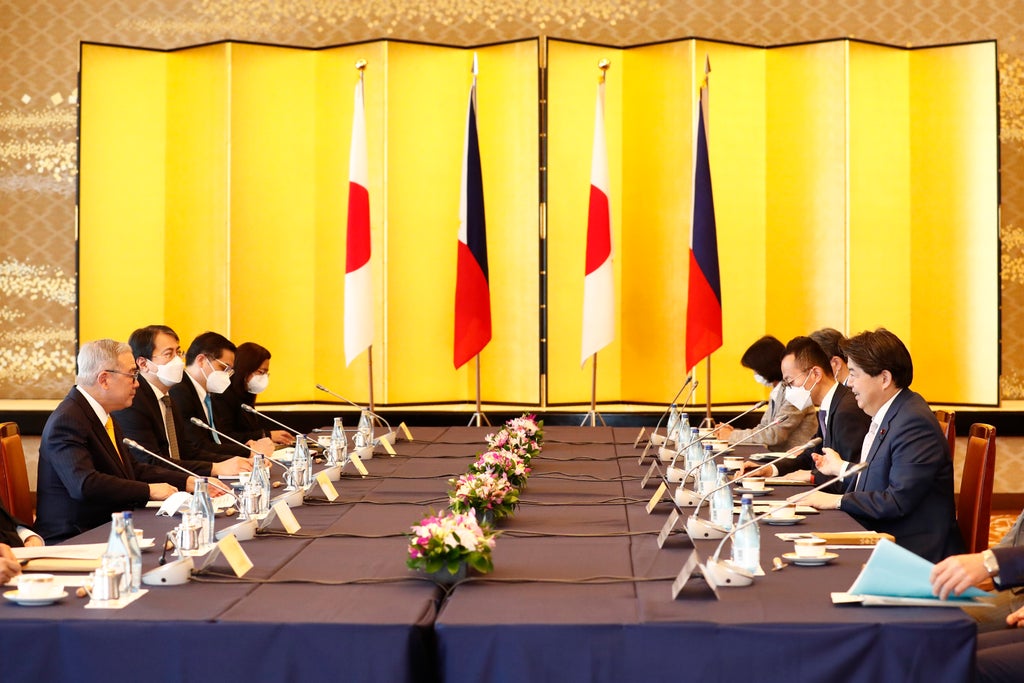
Japan and the Philippines agreed Saturday to start talks toward a possible defense agreement that would allow closer cooperation between their militaries amid regional tensions with China and Russia's invasion of Ukraine.
Japanese Foreign Minister Yoshimasa Hayashi and Defense Minister Nobuo Kishi and their Philippine counterparts, Teodoro Locsin and Delfin Lorenzana, in their first so-called “2+2” security meeting agreed to begin formal discussions about a possible reciprocal access agreement — a defense pact that would allow their troops to visit each other’s countries for training and to exchange defense equipment to increase interoperability and cooperation.
Japan and the Philippines, both U.S. allies, have in recent years stepped up joint exercises and defense cooperation. In 2020, Tokyo and Manila agreed on the export of Japanese air radar systems to the Philippine military.
On Saturday, the four ministers strongly opposed “actions that may increase tensions” in the East and South China seas and affirmed their commitment to a rules-based approach to resolving competing claims under international law. They also said Russia's aggression in Ukraine affects not only Europe but also Asia under the international order, which does not accept any unilateral change to internationally recognized borders by force.
Though it was implicit that China was their main concern, they carefully avoided identifying that country by name.
“We agreed that it's timely to look into the possibility of further expanding our defense cooperation and activities" and to explore ways to conduct capacity and capability building activity “to address issues of mutual concern,” Lorenzana told a joint news conference after the talks.
Kishi said the first “2+2” meeting marks “the beginning of the two countries' efforts toward further deepening their security ties.”
In January, Japan signed a defense cooperation pact with Australia — the first such agreement for Canberra other than with the United States, which is Japan’s only ally.
Japan in recent years has significantly expanded security talks and joint drills with the U.S. and other partners that share its concerns about China’s assertion of its territorial claims in the region, which is home some of the world’s busiest sea lanes.
Japan is especially concerned about Chinese military and coast guard activity in the East China Sea near the Japanese-controlled Senkaku islands, which China also claims and calls Diaoyu.
China, the Philippines, Vietnam, Taiwan, Malaysia and Brunei have been locked in an increasingly tense territorial standoff in the busy waterway in the South China Sea for decades.
Saturday’s agreement between Japan and the Philippines came one day after Chinese President Xi Jinping told outgoing Philippine President Rodrigo Duterte that Beijing and Manila have handled their South China Sea disputes properly and that “regional security cannot be achieved by strengthening military alliances,” according to China’s official Xinhua News Agency.







